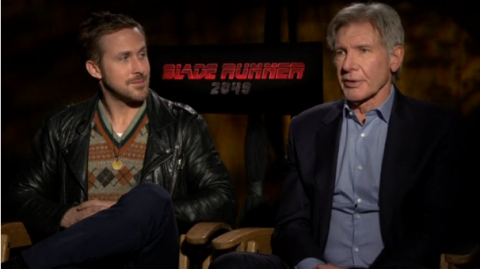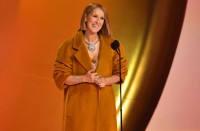
LOS ANGELES, United States (Reuters) — Thirty five years after the original “Blade Runner,” the movie’s sequel, “Blade Runner 2049,” is about to land in cinemas.
Journalists who have seen previews of the film have already started posting mostly gushing reactions on social media.
Harrison Ford, who reprises his role as Rick Deckard in the new film, said the film lived up to his expectations.
“There’s a wonderful emotional context within the film which is one of the things I most admire about it and I found, happily, so much of what I had an ambition for seems to have been achieved,” he said.
Producers of the film have asked reporters not to reveal details of the plot as every development in the story could be seen as a spoiler. Ryan Gosling plays this film’s titular Blade Runner, an LAPD detective sent to exterminate synthetic humans, known as replicants, who have escaped into society.
The film begins with Gosling’s character – only known as K – as he pursues an escaped replicant but what transpires at the scene sends the detective on a quest to discover a larger truth.
When the first film came out, audiences were moved by its foreboding of the future. In ‘Blade Runner 2049’ which is set 30 years on from the original, the future laid out by the film makers also raises questions about contemporary issues, inclufing “overpopulation, global warming, social inequity and being isolated by technology” according to Gosling and Ford.
To create scenes in the future, director Denis Villeneuve worked with British cinematographer Roger Deakins to create fully functional sets, allowing actors to feel immersed in the location and concentrate on their roles.
Ford said, “A picture is worth a 1000 words and that saved me in every scene a thousand words because you would get visceral and substantial information from the environment. It was the best kind of visual support.”
Although “Blade Runner 2049” may look by its trailers to be a conventional science-fiction film, Ford describes it as an “experiential opportunity”, adding, “You discover your relationship to the ideas in the context of an emotional geography so I think as an audience, it has an opportunity to engage you in a way that is pretty rare.”
The film is set for release in the US on October 6.







